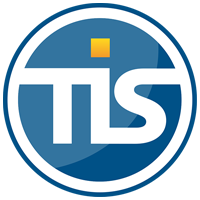| 19-05-2020 | Carlo de Meijer | treasuryXL
One of the recent promising blockchain trends is the growth of Blockchain-as-a Service (BAAS) platforms and software. This is highlighted by the recent release of the Second Annual Blockchain 50 list by Forbes. Several of the entrants on this year’s list offer blockchain-as-a-Service, including global players such as Microsoft, Amazon and IBM.

These third-party services are a relatively new development in the growing field of blockchain technology, mirroring the growing demand for hosting decentralised software services to boost market growth.
Fortune Business Insights recently revealed that the BAAS sector is set to reach a valuation of almost USD 25 billion (EUR 23,2 billion) by 2027, from USD 1.9 billion recorded in 2019, demonstrating an impressive so-called compound annual growth rate (CAGR) of 39.5% during the forecast period (2020-2027). According to the same report especially the retail and e-commerce segment is expected to adopt BAAS solutions and are expected to register the highest growth rate during the forecast period.
What is BAAS?
In my first blog on BAAS I wrote last year I already explained what it is. Here follows a short resume.
BAAS is a cloud-based service that enables users to develop their own digital products by working with blockchain. It is in fact the distributed ledger equivalent of Software-as-a-Service or SAAS, the means by which businesses subscribe to and access cloud-based software.
These digital products may be smart contracts, decentralized applications (Dapps), or even other services that can work without any setup requirements of the complete blockchain-based infrastructure.
How does BAAS work?
BAAS describes the process by which a third party installs, hosts and maintains blockchain networks on behalf of other organizations. The external service provider thereby offers to set up all the necessary blockchain technology and infrastructure for a fee. They thereby take care of the infrastructure and maintenance issues.
In fact, a BAAS’ provider’s role is similar to that of a web hosting provider. It allows customers to leverage cloud-based solutions. BAAS helps businesses develop and host blockchain apps and smart contracts in a blockchain ecosystem that is managed and administered by cloud-based service providers.
The BAAS operator typically offers support activities like bandwidth management, suitable allocation of resources, hosting requirements, and data security features. As a result enterprises can focus on their core business without worrying about the day-to-day complexities of operating a blockchain.
Why is BAAS needed?
Consumers and businesses are increasingly willing to adapt to blockchain technology. However, the technical complexities and operational overhead involved in creating, configuring, and operating a blockchain and maintaining its infrastructure often act as a barrier.
Blockchain requires huge investment when it comes to setting up infrastructure and maintaining it. It is much more resource intensive, as compared to traditional databases. It also consumes a huge amount of energy and requires huge bandwidth.
What may BAAS bring?
BAAS is gaining significant traction recently, and that for various reasons. For many companies, pairing cloud services with BAAS could be very valuable. The personalized flexibility of BAAS technology allows businesses to combat pain points by tailoring integrations. BAAS can resolve complex issues around transparency, efficiency and cost in a simplistic and straightforward manner, thereby firmly reducing the barriers to entry for enterprise blockchain applications.
By favouring this BAAS model, companies can take advantage of the many often-mentioned benefits of blockchain technology – improved transparency and accountability, data security and trust minimization – without having to develop their own blockchain ecosystem or invest in expensive in-house computing resources.
They may give diverse businesses the opportunity to experiment with blockchain apps and smart contracts while letting service providers manage the network itself.
Is BAAS valuable for SMEs?
By organization-size, BAAS market is still dominated by large enterprises especially in the financial sector. The SMEs segment however is expected to grow at a higher rate, given the above mentioned opportunities of BAAS for these enterprises.
BAAS is ideal for such organizations that outsource their technological aspects, and are not involved in understanding the working mechanism of the blockchain. It allows these firms and other organizations to quickly get to grips with the technology without having to develop their own proprietary blockchain. It lets these enterprises focus on their core jobs and not waste time in setting up of infrastructure facilities.
BAAS is firmly growing across a variety of industries for issues such as supply chain management, identity management, payments. Blockchain technology is emerging as an optimal solution to many of the challenges faced by SMEs such as access to various financing sources. SMEs looking to expand their businesses in foreign countries can gain wider access to trade financing sources using BAAS as this technology is decentralized and cuts out the middlemen from the process.
BAAS service providers
BAAS has become so popular, that some of the largest tech companies in the world all have divisions dedicated to the integration and promotion of BAAS. But also some of the most successful cloud service providers have started offering Blockchain-as-a-Service.
Main companies or platforms that are operating in the BAAS market include the names like Amazon, Microsoft, Oracle, Corda, IBM, SAP, Accenture, NTT Data, Stratis, Huawei, Baidu, Alibaba, Infosys, consequently shaping the future of blockchain applications.
But there are also the many smaller innovative BAAS companies – mostly based in the US – that integrate these game-changing ledgers into everyday technology such as Altoros, Blockstream, Bloq, Dragonchain, Factom, Innominds, PayStand, Skuchain, Symbiont, tZERO, VironIt etc.
Some major players in the BAAS market
Let’s take a look at some of the key BAAS service providers helping enterprises realize their blockchain ambitions.
Alibaba Cloud Blockchain as a Service
Alibaba’s BAAS offering, is under the umbrella of its cloud computing arm. Utilizing Quorum, Hyperledger Fabric and the Ant Blockchain, the platform integrates Alibaba Cloud’s Internet of Things (IoT) and anti-counterfeiting technologies to create blockchain solutions for product traceability, among other things. At present, Alibaba’s BAAS offering encompasses enterprise-level BAAS services, an agile BAAS platform that supports private deployment, and specific blockchain solutions for container services.
Amazon Web Services
Amazon provides various blockchain tools to both large and small companies via its cloud computing arm, Amazon Web Services (AWS). AWS is a BAAS leader in many industries. The company integrates blockchain-based networks and business processes for some of the largest companies in the world (including T-Mobile and PwC) to improve IT infrastructure, business processes, human resources, financial transactions and supply chains.
Amazon, which has introduced Amazon Managed Blockchain, a BAAS service that “makes it easy to create and manage scalable blockchain networks” using open source frameworks including Ethereum and Hyperledger Fabric. Amazon has attracted a steady stream of high-profile clients including Nestlé, BMW, Accenture, Sony Music Japan, and the Singapore Exchange.
Huawei Blockchain Service
Huawei unveiled its novel BAAS solution, called Blockchain Service, based on Linux Foundation’s Hyperledger Fabric 1.0. The solution is devised to help companies design smart contracts focusing on supply chain, securitized assets, and public services, on top of a distributed ledger network.
IBM Blockchain Platform
Another key BAAS provider is IBM. Its Blockchain Platform allows organizations to “easily build and join a blockchain network on-premises, or on any private, public, or hybrid multicloud. Partnerships have been vital to IBM’s continuous BAAS expansion. IBM’s Blockchain-as-a-Service business deploys Hyperledger Fabric and has been used extensively in industries such as food supply, media, advertising and trade finance.
Microsoft Azure
And there is Microsoft’s Azure platform based on Ethereum. That BAAS offering enables clients to deploy blockchain networks, build apps with confidence and store data off-chain. Clients can choose to build on several networks, while three products are available: Azure Blockchain Service, Azure Blockchain Workbench, and Azure Blockchain Development Kit.
As Azure can be integrated with other Microsoft products such as Logic Apps and Flow, this makes it ‘a dependable choice’ for enterprises seeking to harness blockchain, such as General Electric and T-Mobile .
R3 – Corda
Corda, the open-source blockchain platform developed by global enterprise solutions provider R3, enables companies to transact directly and privately using smart contracts. The BAAS provider was recently used by KLM Royal Dutch Airlines to simplify financial processes and enhance settlements. Interoperability, security and privacy are the foundations of the finance-focused Corda. The firm R3 developed solutions for over 300 clients.
Regional development
According to a recent BAAS Market Report North America – especially the US, Mexico and Canada – owns the largest share in the worldwide market for BAAS. One of the major reasons for the widespread development and adoption of BAAS tools in North America is the strong presence of small, medium, and large tech companies operating in the US. This, along with rising integration of BAAS solutions with public utilities services, will enable the region to dominate the BAAS market share in the foreseeable future.
Europe has been deemed as the second-leading market for BAAS. Apart from this, the region can note significant surge in adoption of blockchain technology in the forthcoming years, because of the strong support from the government across various countries. Increasing focus of well-established players on blockchain technology will propel the market in the near future.
The Asia Pacific (APAC) region is believed to be the third-most lucrative market for BAAS. The BAAS Market Report states that Asia-Pacific will register the highest growth rate during the forecast period. The BAAS sector will be boosted by enormous blockchain investment by China, Japan, and South Korea governments.
Final remarks
BAAS may become the catalyst that leads to a widespread adoption of blockchain technology and to a deeper penetration across various sectors and businesses, especially by SMEs.
According to the World Economic Forum (WEF) blockchain technology could be instrumental in bridging the gap in trade financing around the world. Similar benefits can be reaped by SMEs in the context of supply chain processes as transparency, immutability, and traceability become inevitable. These potential advantages of blockchain for SMEs may provide a significant boost to the BAAS market growth in the coming years.
So, BAAS may be seen as a great opportunity for SMEs to take advantage of blockchain.

Carlo de Meijer
Economist and researcher
Source



















